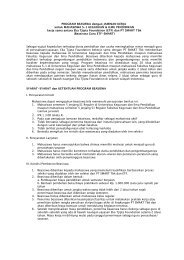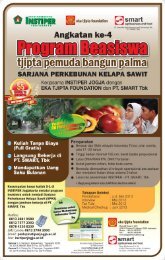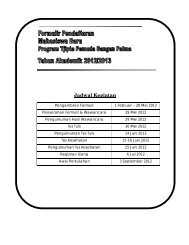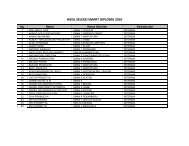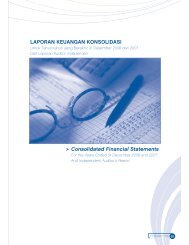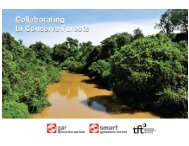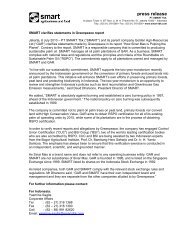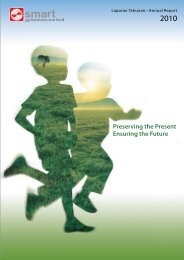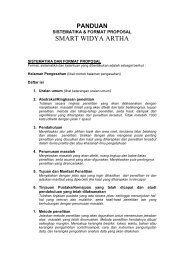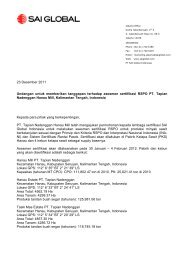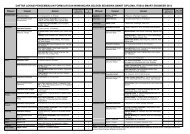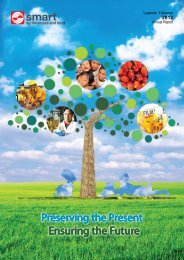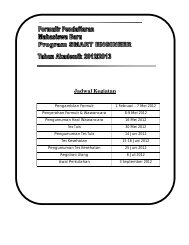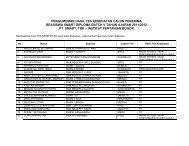Yield Improvement Policy - PT SMART Tbk
Yield Improvement Policy - PT SMART Tbk
Yield Improvement Policy - PT SMART Tbk
You also want an ePaper? Increase the reach of your titles
YUMPU automatically turns print PDFs into web optimized ePapers that Google loves.
9.3 Management<br />
As part of our commitment to continuous improvement, <strong>SMART</strong>RI continues to push the<br />
frontiers of innovation to enhance productivity of palm oil production in our estates as well<br />
as in smallholdings. <strong>SMART</strong>RI is actively collaborating with several reputable national and<br />
international research institutions and universities.<br />
We continue to fully support the development of plasma smallholders and are committed to<br />
improving the productivity of plasma smallholders. We provide them with high yielding<br />
seeds to improve productivity. We also provide transfer of knowledge and capacity building<br />
through training on best agricultural practices such as optimal fertiliser usage and<br />
application techniques, Integrated Pest Management, health and safety, and other<br />
agronomical support.<br />
Besides educating plasma smallholders on the optimal usage and application of fertilisers,<br />
we help to supply good quality fertilisers to them. Since fertilisers account for a major part of<br />
the operation cost, we also allow them to pay in affordable instalments.<br />
9.4 Land Suitability<br />
The suitability of land for oil palm cultivation depends on several factors such as its<br />
elevation and slope, soil texture and structure as well as rainfall. Usually, land that is located<br />
in mineral soil is suitable while land located in sandy soil or peat soils is less suitable or<br />
unsuitable.<br />
Generally, land suitability can be classified into four classes, namely: highly suitable,<br />
moderately suitable, marginally suitable and not suitable.<br />
Most of our oil palm trees are planted in moderately suitable land. Furthermore, as a policy,<br />
we do not cultivate on peat land regardless of depth. In developing new plantations, we<br />
prioritise the development on mineral soils with suitable climate and other standard<br />
agricultural practices.<br />
Monitoring and Evaluation<br />
10. We understand that best practices evolve and we are committed to continuous<br />
improvement. We adopt an open learning approach to develop and share these<br />
developments with our smallholders.<br />
11. We commit to evaluating and reporting our performance regularly against our YIP in an<br />
open manner through our website, annual sustainability report and on-going engagements<br />
with key stakeholders.<br />
Developed by GAR in consultation with TFT<br />
15 February 2012<br />
4



